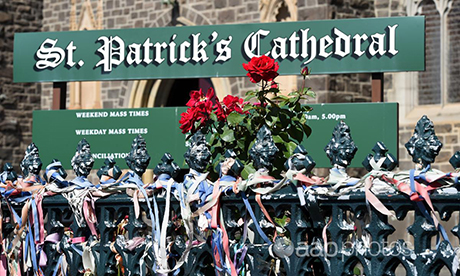In a landmark decision, Australia’s High Court has ruled that the Catholic Church is not vicariously liable for child abuse committed by priests not directly employed by the institution.
This ruling overturns a 2023 Victorian court decision that held the church responsible for the abuse of a five-year-old by assistant priest Father Bryan Coffey.
The diocese and its current bishop, Paul Bird, were sued by a man who said he was sexually assaulted by Coffey at his parents’ home in Port Fairy in 1971 when he was five years old.
Coffey, who is now dead, received a three-year suspended sentence in 1999 after being convicted of charges including indecent assaults on males and females under 16.
The High Court’s decision centres on the principle that vicarious liability applies strictly to formal employer-employee relationships.
Justice Jack Forrest who presided over the original case, had previously determined that the Diocese of Ballarat was liable due to Coffey’s role as a “servant of the diocese” which provided him with authority – and the access to abuse children.
However, the High Court argued that extending vicarious liability beyond direct employment creates legal uncertainty and indeterminacy.
Catastrophic blow to abuse victims
Ken Cush and Associates, representing the victim known as DP, said their client was “disappointed that the compensation for the sexual abuse of Coffey has been taken away by the law in Australia being unable to find the Bishop vicariously liable”.
Maurice Blackburn’s principal lawyer, John Rule, criticised the decision saying it allowed the church to evade responsibility.
“The church has known about its priests abusing children for centuries and did nothing to stop it” Rule said.
“Unfortunately, this decision means that in some cases the church will be able to again evade responsibility for the scourge of child abuse in its ranks.”
Ross Koffel, executive chairman at Koffels Solicitors and Barristers, said the decision was a “catastrophic blow” to the victims of abuse by religious clergy and volunteers at other institutions.
He said the NSW government had already changed the law to hold organisations vicariously liable. But those laws were not retrospective he said, something that could be changed with a “simple amendment”.
Sources
Additional reading
News category: Great reads, World.




